The Western Water Symposium was sponsored by The Claremont Colleges Library as part of programming associated with a Council on Library and Information Resources (CLIR) Digitizing Hidden Special Collections and Archives grant. The goal was to heighten awareness of the newly digitized Western Water Archives.
This unique collection has been created in collaboration with seven partner institutions whose documentary material has been digitized and made available online as an important step in democratizing and increasing access to Southern California’s water history, which is expected to help pave the way for new research and classes exploring the region’s complicated water policies, politics, and practices. This event featured speakers to address various issues (e.g. history, present, and future) relating to water in California today.
Symposium Recording | Symposium Pressbook | Schedule | Speakers | Student Poster Showcase
Watch the Symposium
Symposium Pressbook
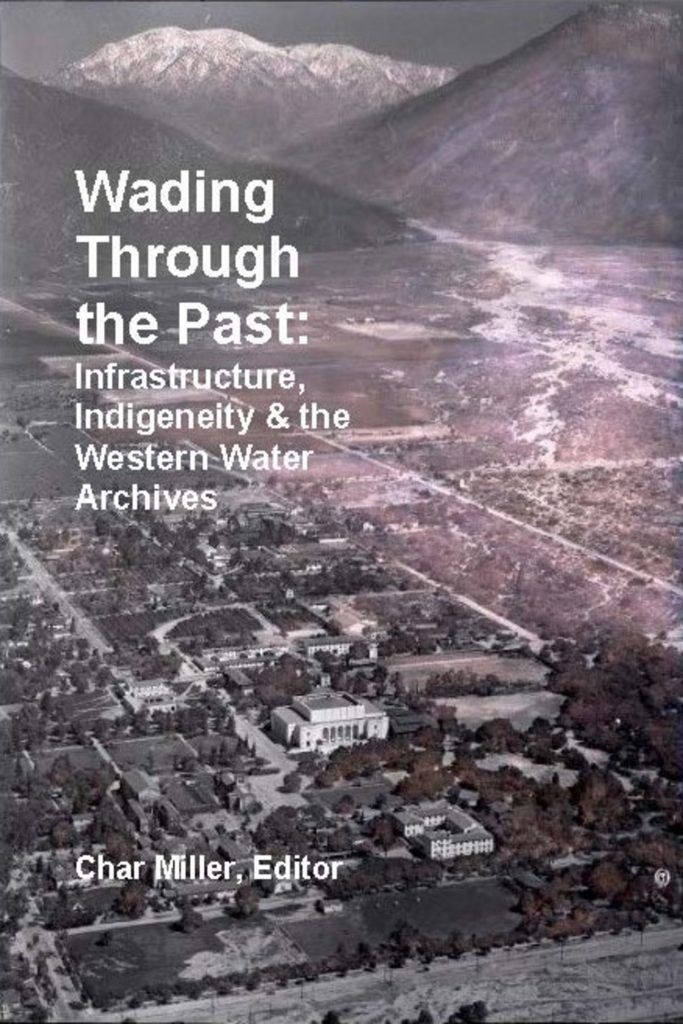
Wading Through the Past: Infrastructure, Indigeneity & the Western Water Archives
Char Miller, Editor
Wading Through the Past is a collection of essays based on the 2021 Western Water Symposium, sponsored by The Claremont Colleges Library. An assortment of scholars, librarians, and advocates have virtually gathered to discuss the process of digitizing, making accessible, and using the Western Water Archives in the hope that we might better understand and improve our relationship to water.
Symposium Schedule
Welcome & #CLIRWater Project
9:00 am – 9:30 am (PST)
Presented by, Lisa Crane, Western Americana Manuscripts Librarian @ The Claremont Colleges Library
The 3-year Digitizing Southern California Water Resources project, commonly known as #CLIR Water project, funded by a Council on Library and Information Resources (CLIR) Digitizing Hidden Special Collections and Archives grant involved the digitization of over 20 collections from six partner organizations. Lisa will provide an overview of the project and the resultant Western Water Archives website which will continue to grow.
When Water is Money, Drought is the Taxman: Tales of Boom and Bust on the
Santa Ana River
9:35 am – 10:15 am (PST)
Presented by Dr. Heather Williams, Professor of Politics @ Pomona College
The City of Redlands is a charming garden Arcadia in a hard-scrabble pocket of the eastern Inland Empire. Behind its lush tree-lined streets, Victorian mansions and heritage orchards is a 19th century story of audacious private-sector water engineering and giddy land and water market speculation. The city’s rise in the 1880s was marred by the bankruptcy of the company and the men behind its pioneering mountain water bank and aqueducts in the 1890s. The collapse of the Bear Valley Irrigation Company (BVIC), a mercurial market darling that ensnared investors in New York, London, Glasgow, and Geneva, occurred as a result of water engineers’ scant understanding of year-to-year rainfall patterns in the region. Decades of lawsuits that followed the demise of the BVIC altered the course of land development and basin management in the 20th century. While most local historians view the misadventures of the BVIC as a colorful water story from Southern California’s past, similar miscalculations about weather, fire, and flood drive land use decisions in key portions of the region today, resulting in dangerous entanglements of global finance capital with real estate buildout and water management in the Southland.
Short Break
10:15 am – 10:20 am (PST)
Sustainable Water Projects
10:20 am – 11:00 am (PST)
Presented by Dr. Sami Maalouf, Professor of Engineering @ California State University, Northridge
This discussion examines issues of water sustainability in arid and semi-arid regions. As water is essential to sustain life and while its availability is declining, we need to evolve and make better use of regional water supplies if we were to achieve a sustainable water system. Identifying sources from traditionally non-potable sources, developing economical technologies that are safe and acceptable among a broad population and achieving sustainable water supply and environmental equality are the challenges we are facing.
Short Break
11:00 am – 11:05 am (PST)
Payahuunadü Water Story
11:05 am – 11:45 am (PST)
Presented by Teri Red Owl, enrolled member of the Bishop Paiute Tribe and Executive Director of the Owens Valley Indian Water Commission, a Tribal Consortium.
Teri Red Owl will share the water history of the Bishop Paiute Tribe and contemporary water issues.
The Bending Water Project: Surfacing Data Histories in California’s Water Documents
11:50 am – 12:20 pm (PST)
Presented by Jeanine Finn, Data Librarian @ The Claremont Colleges Library and Catalina Lopez, Project Manager of The Bending Water Project @ The Claremont Colleges Library
The Bending Water Project began in January 2020 at the Claremont Colleges as part of the second cohort of the Mellon-funded Collections as Data grant. A team of faculty and library staff is working with the digitized California Water Documents collection to develop computational accessibility and usefulness of the “data-rich” materials. The collection, which consists of over 13,000 digital files, is filled with charts, maps, graphs, and narratives describing late 19th and early 20th century California water history. Our work is intended to broaden the reach of these materials to water scholars from a variety of disciplines, as well as to surface the histories of Native communities within these collections by working with community partners. We will present a brief overview of the project to-date, and invite discussion about engaging with multi-disciplinary research communities as well as some of technical and practical challenges of working with archival data.
Speaker Bios
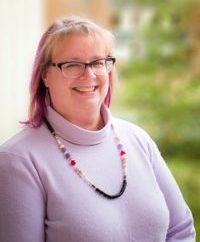
Lisa Crane
Western Americana Manuscripts Librarian
The Claremont Colleges Library
Lisa Crane is the Western Americana Manuscripts Librarian in Special Collections, The Claremont Colleges Library, and served as Project Director for the Digitizing Southern California Water Resources project funded by the Council on Library and Information Resources (CLIR) Digitizing Hidden Special Collections and Archives grant. She holds an MLIS with an emphasis in Archival Studies from San Jose State University.
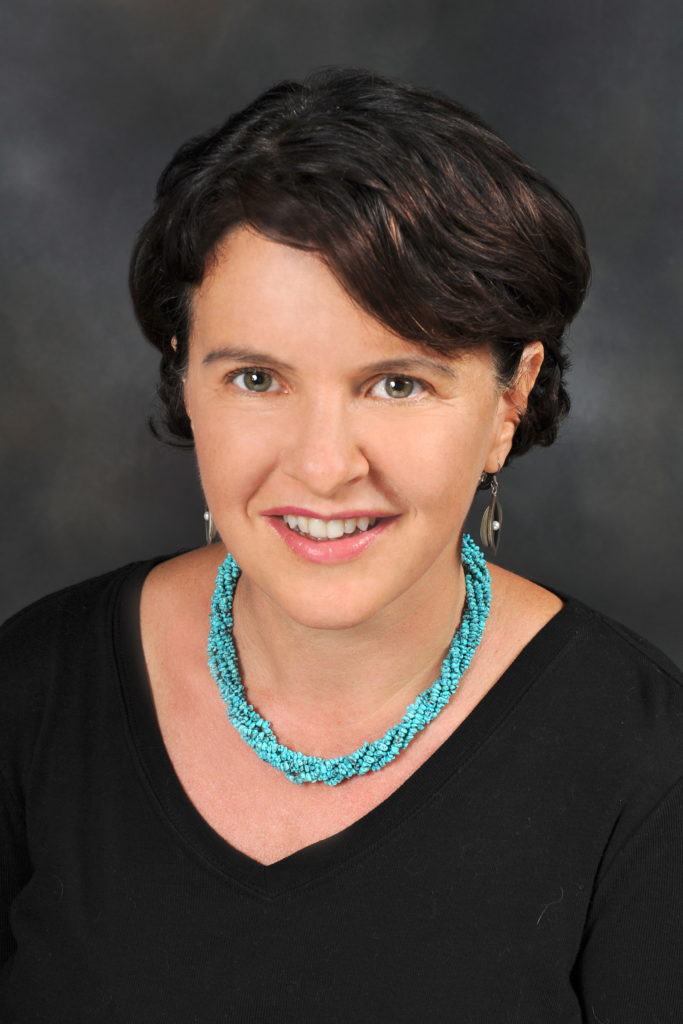
Dr. Heather Williams
Professor of Politics
Pomona College
Dr. Williams is Professor of Politics at Pomona College. She also serves in the Programs in Environmental Analysis and International Relations. She is the author of Social Movements and Economic Transition: Markets and Distributive Policy in Mexico and Planting Trouble: The Barzon Debtors’ Movement in Mexico, various book chapters and articles in journals, including Politics & Society, Social Science History, Latin American Perspectives, Environment and Society (Sao Paolo), and Sustainability. Currently, she is working on a book project for the University of California Press on water and the built environment in Southern California entitled River Underground: The Secret Life of the Santa Ana.

Dr. Sami Maalouf
Professor of Engineering
California State University, Northridge
Dr. Maalouf’s interests are centered on environmental fluid mechanics (water quality models, turbulence, transport phenomena, stratified flow, surface and groundwater flow and contamination) and sustainable development (heat disposal, alternative energy systems, hydro-electric power and energy conservation). Current research focuses on modeling of the fate and transport of contaminants in groundwater and around coastal zones. He is a Professor of Engineering in the Department of Civil Engineering and Construction Management at California State University, Northridge.
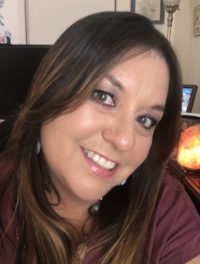
Teri Red Owl
Executive Director
Owens Valley Indian Water Commission
Teri Red Owl is an enrolled member of the Bishop Paiute Tribe. She lives in Bishop, California with her husband and children. Teri has worked for the Owens Valley Indian Water Commission, a Tribal Consortium that provides water, environmental, and agricultural services to its member Tribes, for 26 years and has served as the Executive Director for the past 22 years. Teri is at the forefront of efforts to negotiate tribal land and water for the Bishop, Big Pine, and Lone Pine tribes and advocates for environmental protection and policy change in Payahuunadü, in Los Angeles, and at the state and federal levels.
Teri has extensive experience in grant management and oversight and has two business degrees. Teri has successfully managed and implemented a variety of projects and grants while maintaining sound financial management. Teri has served on numerous boards, committees, and commissions including Bishop Paiute Gaming Corporation, Inyo County Water Commission, Inyo/Los Angeles Standing Committee, California Indian Manpower Consortium, U.S. Environmental Protection Agency Region 9 Regional Tribal Operations Committee, California Department of Water Resources – Water Plan Update Committee, Contributing Author Committee for 4th California Climate Change Assessment Indigenous Communities Report, Bishop Indian Utility Organization, and Bishop Paiute Development Corporation. Teri is a licensed Tribal Court Advocate and in her spare time she volunteers as the Secretary for the local Cub Scouts and a youth cheerleader head coach.
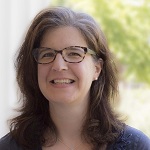
Dr. Jeanine Finn
Data Science & Digital Scholarship Coordinator
The Claremont Colleges Library
Dr. Finn is the project lead for the Bending Water project and the Data Science and Digital Scholarship Coordinator at The Claremont Colleges Library. She has been working with data and digital scholarship at the Claremont Colleges Library since the beginning of her CLIR postdoctoral fellowship in 2017. Her work at the library includes extensive outreach across the seven-college campus offering support for data management planning, collaborating on data-intensive student and faculty research, and serving as a key point of contact for the library’s expanding data science and digital scholarship resources.
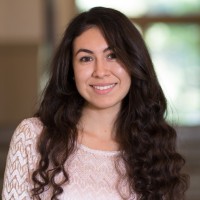
Catalina Lopez
Project Manager, The Bending Water Project
The Claremont Colleges Library
Catalina Lopez is the project manager for the Bending Water Project at The Claremont Colleges Library. She began working at the library as a digital production student assistant and digitized materials in the California Water Documents collection until taking on the role as project manager in February 2020. Her current role involves engaging with water data and indigenous history experts at other California institutions and developing workflows to enhance the digitized materials in the collection. She is also a reference librarian at Chapman University and has worked in university libraries for over 8 years.
Student Poster Showcase
On May 10, 2021 The Claremont Colleges Library and Pomona College sponsored a spring-semester poster presentation showcase for students to share their scholarship created while using the materials found in the Western Water Archives collections. The showcase was open to all currently enrolled undergraduate and graduate students from any college or university and included participatory and cash prizes.
All content is Copyright protected by the creators of each project and must be cited if any portion of the work is referenced using the recommended citation provided.
White Gold: The Mojave Desert and the Biggest Water Project You’ve Never Heard Of
Jacob Greene, Pomona College, Department of Environmental Analysis
Gabriel Konar-Steenberg, Pomona College, Computer Science
Ian Ragen, Pitzer College, Department of Environmental Analysis
More than any other factor, the development of Southern California has been shaped by water. In the 20th century, state and local governments completed massive infrastructure projects to import water to Los Angeles and its arid environs. Today, a lesser-known project has emerged: Cadiz, Inc., a venture capital operation, seeks to pump water from beneath the Mojave Desert to sell to urban water districts. We use historical documents from the Western Water Archives and relevant contemporary materials to explore the significance of this project. At issue: Cadiz, like past projects, prioritizes water extraction and economic growth over the efficient use of existing sources and deemphasizes potential ecological and cultural harms. Until we fully embrace water efficiency and involve Indigenous stakeholders in policymaking, projects like Cadiz will continue to prioritize extraction over these detriments.
Poster Presentation [Video] | Poster & Bibliography [PDF]
Greene, J., Konar-Steenberg, G., & Ragen, I. (2021, May 10). White Gold: The Mojave Desert and the Biggest Water Project You’ve Never Heard Of [Poster]. 2021 Western Water Archives Symposium, The Claremont Colleges Library, Special Collections. https://westernwaterarchives.org/2021-water-symposium/#postershowcase
Water and Time: (Re)Imagining the Los Angeles River
Lindsay Chu, Pomona College, Department of History
Emma Duggleby, Scripps College, Department of Environmental Analysis and Media Studies
Thyra Herrmann, Pitzer College, Department of Environmental Analysis (Environmental Policy)
In the early 1900’s, the Los Angeles river was understood as both a vital resource and an unreliable hindrance to the city’s development, leading to the outsourcing of water and the river bank’s encasement in concrete. Recently, local efforts have been made to reimagine the river as either a local water supply in line with its historical use or a novel site of recreation. However, these contemporary proposals directly conflict with each other, leading to our current situation where the L.A. River remains unchanged, polluted, and largely forgotten within the metropolis. Additionally, they each speak to continued conceptions of the river as a utility.
Poster Presentation [Video] | Poster & Bibliography [PDF]
Chu, L., Duggleby, E., & Herrmann, T. (2021, May 10). Water and Time: (Re)Imagining the Los Angeles River [Poster]. 2021 Western Water Archives Symposium, The Claremont Colleges Library, Special Collections. https://westernwaterarchives.org/2021-water-symposium/#postershowcase
Fires, Floods, and Destruction: Effects of Developing in the Pomona Valley Floodplain
Makeda Bullock Floyd, Pomona College, Department of Environmental Analysis
Gabe Garcia, Pomona College, Neuroscience
Considering ecological functions, geography, city planning and infrastructure, and cultural values, we situate the devastating Southern California 1938 flood in context with similar instances. We then analyze the implications today for floods and flood control infrastructure to promote awareness of future flood risks in the region.
Poster Presentation [Video] | Poster & Bibliography [PDF]
Bullock Floyd, M., & Garcia, G. (2021, May 10). Fires, Floods, and Destruction: Effects of Developing in the Pomona Valley Floodplain [Poster]. 2021 Western Water Archives Symposium, The Claremont Colleges Library, Special Collections. https://westernwaterarchives.org/2021-water-symposium/#postershowcase
Salton Sea : A Toxic Bed of Lies
Diya Courty-Stephens, Claremont McKenna College, Environment, Economics, & Politics
Paul Maillot-Singer, Pomona College, Religious Studies
We aim to expose the Atlas’ self-serving approach by re-centering the narratives of those who have suffered most from the greed and neglect wrought upon the region.
Poster Presentation [Video] | Poster & Bibliography [PDF]
Courty-Stephens, D., & Maillot-Singer, P. (2021, May 10). Salton Sea: A Toxic Bed of Lies [Poster]. 2021 Western Water Archives Symposium, The Claremont Colleges Library, Special Collections. https://westernwaterarchives.org/2021-water-symposium/#postershowcase
County of Canals: An Environmental History of the All-American Canal
Ivan Gonzalez-Soto, UC Merced, Interdisciplinary Humanities Graduate Group (History & Critical Race and Ethnic Studies)
My research on southernmost California’s All-American Canal explores the ways in which water development projects in the Imperial Valley have irrigated arid desert lands, facilitated industrial agricultural growth, and transformed power relations in water politics. Since 1941, the All-American Canal has rerouted Colorado River water to the Imperial Valley. In this poster, I examine archival materials to highlight the significance of water in the Imperial Valley through the All-American Canal. To broaden the scope of my work, I utilize materials in the Imperial Valley Records, Water Resources Collection.
Poster Presentation [Video] | Poster & Bibliography [PDF]
Gonzalez-Soto, I. (2021, May 10). County of Canals: An Environmental History of the All-American Canal [Poster]. 2021 Western Water Archives Symposium, The Claremont Colleges Library, Special Collections. https://westernwaterarchives.org/2021-water-symposium/#postershowcase